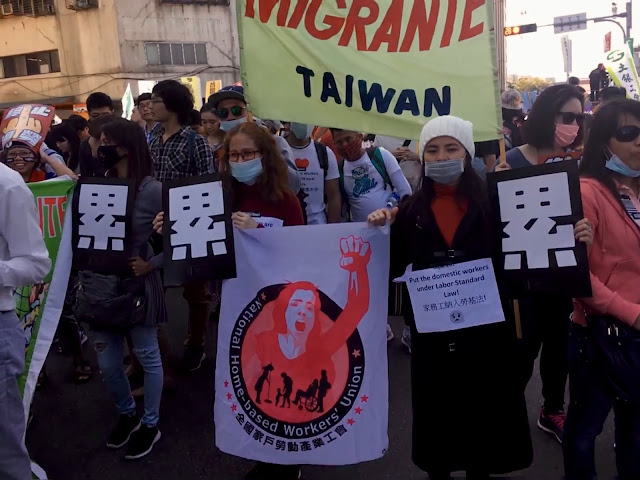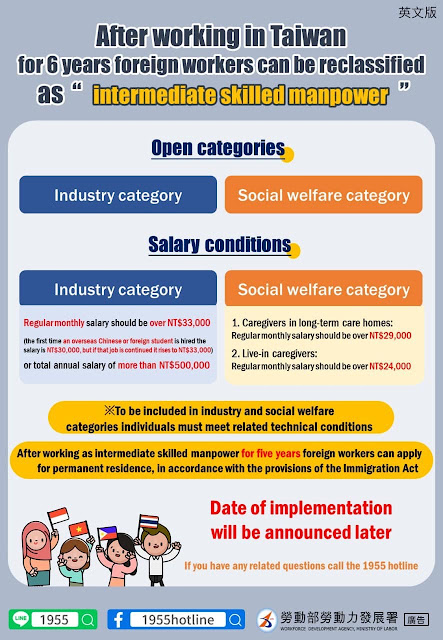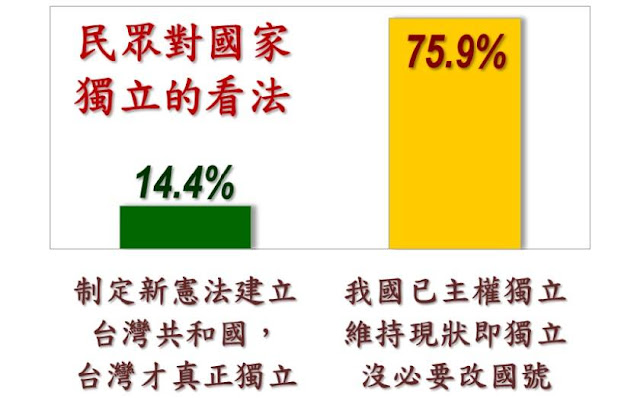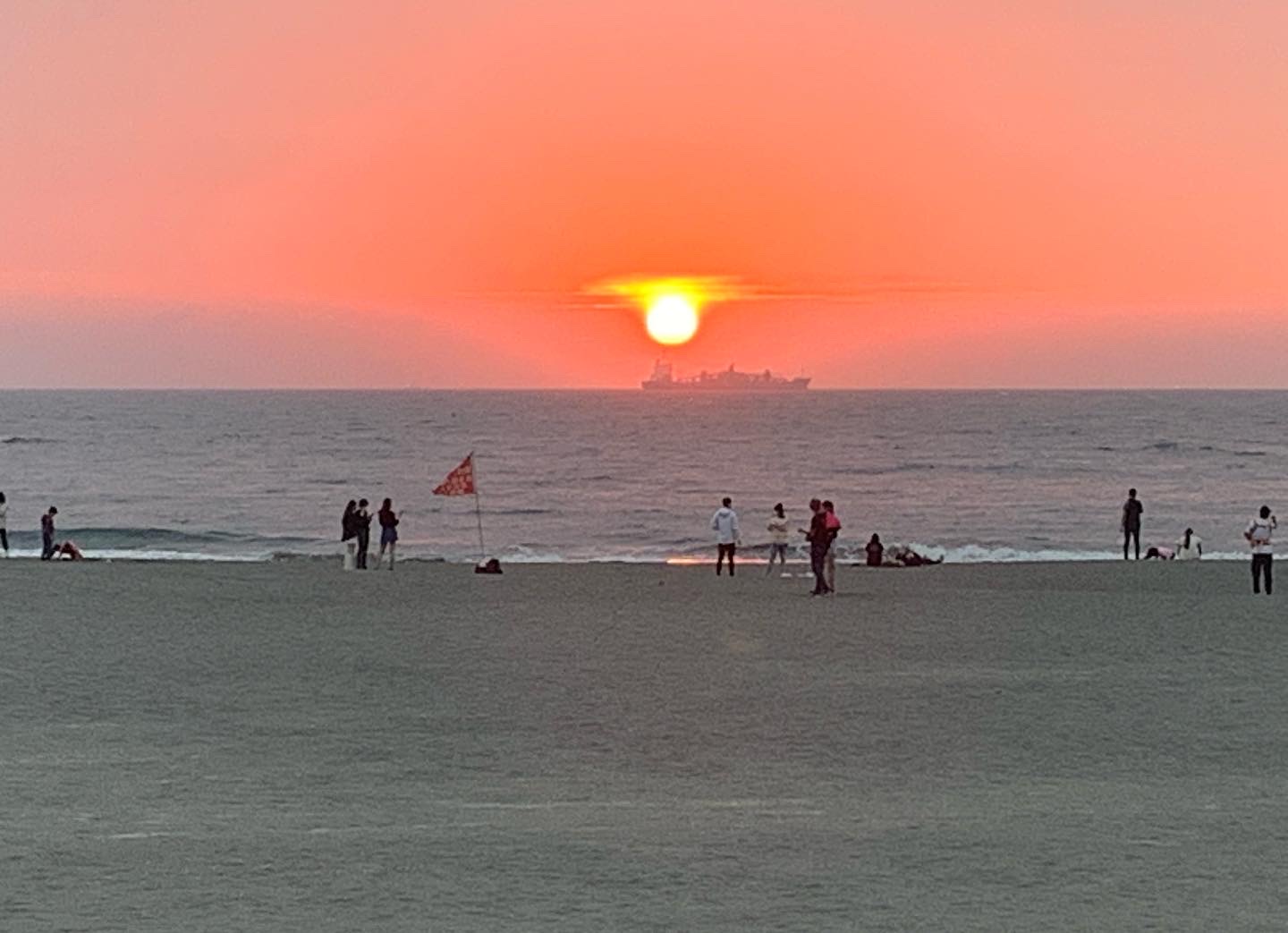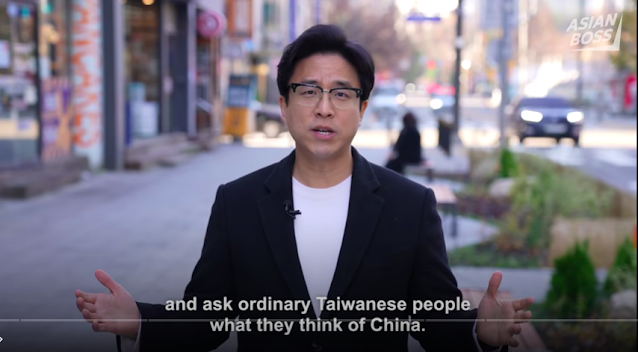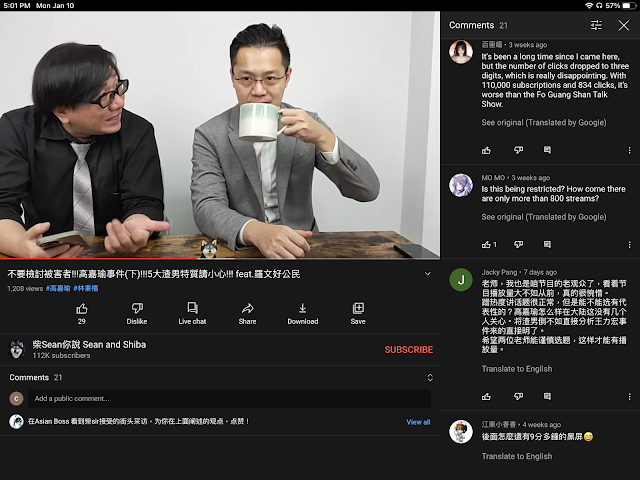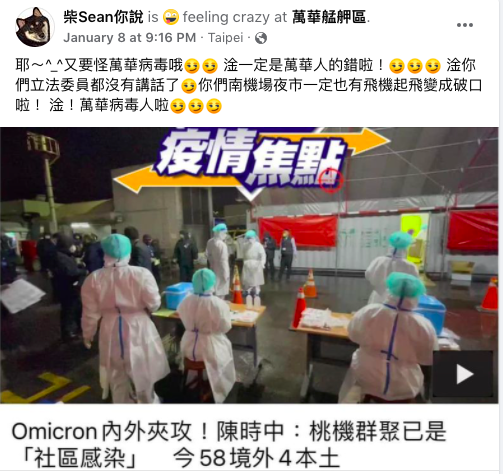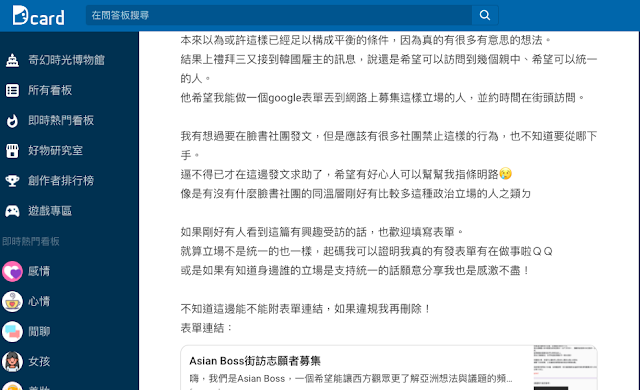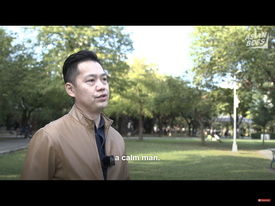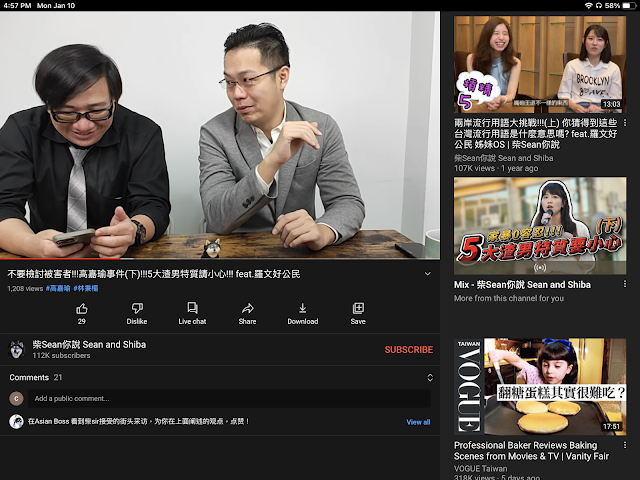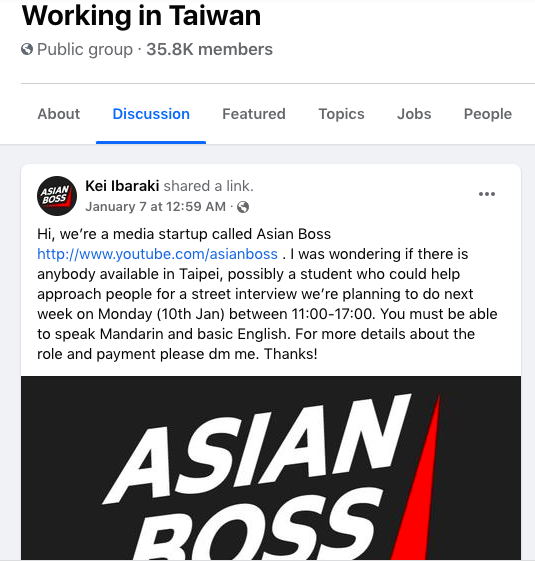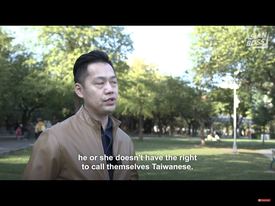Migrante Taiwan at the 2017 Labor Day protest -- note that they're asking for home care workers to be covered under the Labor Standards Act, not permanent residency
The Ministry of Labor recently announced a path -- if you can call it that -- for foreign blue-collar workers to gain permanent residency. This has been a long time in the making: the ministry has been talking about this since at least 2015, and lawmakers have been discussing it for at least a year.
I initially called the announcement "fantastic news", but honestly, it's only fantastic in that the gate to even begin a journey to permanent residency has been firmly shut to foreign blue-collar workers until now. On ICRT Donovan Smith said the door has been opened just slightly, more as a signal than as an actual practical policy to help such workers gain permanent residency. I'd put it similarly: the new rules provide a gatekeeper who will unlock the gate for a lucky few who can answer his riddles three.
In other words, the rules are so Byzantine and unachievable that they will apply to approximately zero people. Under the new guidelines, foreign blue collar labor can apply for permanent residency after five years if they have an Associate's degree or some sort of technical or professional certification, along with earning a minimum monthly salary that is about NT$3,000/month above the average for such jobs.
By the end of that, there's an even higher minimum salary requirement (about NT$50,000/month) which approaches what many white-collar workers make in Taiwan -- including foreign white-collar labor. I'm not sure if that requirement is for both pathways.
Even Taiwanese with university degrees might not get entry-level offers much higher than that, so it's deluded to think employers, who recruit foreign labor for blue-collar work through the deeply corrupt brokerage system, are going to do so.
Another option is to work for 6 years in the same industry and be classified as "intermediate skilled workers", which then kicks off a 5-year wait for a total of 11 years.
Such a salary is unattainable by most blue-collar workers, foreign and Taiwanese alike and creates other hurdles: it's not uncommon to come to Taiwan with a job in, say, fishing, and then switch categories to factory work. Some fields pay better than others, and while all are exploitative toward foreign labor to a degree, some are worse than others (fishing is among the worst, though domestic work, often done by women, is rife with abuse -- including, occasionally, sexual assault.) In other words, some workers change industries to make more money or find work they prefer. Others do so to escape exploitative or abusive situations.
Forcing workers to choose between changing industries and having their time in Taiwan count toward permanent residency is cruel, in a system which is already far too cruel. Not that it matters much, as almost nobody will qualify under the current requirements.
What's more, it's rather discordant to give foreign blue-collar workers a path to permanent residency -- however impossible actually attaining it may be -- but still not include many them in the Labor Standards Act. That's right -- foreign home care workers are still not covered unless they're from Thailand, because the Thai government requires it. Workers in other industries are, but it's extremely common for employers to simply, well, ignore that.
For more of an idea of what life in Taiwan is like for foreign blue-collar labor, I highly recommend reading Joe Henley's Migrante.
And before I get into this further, I suggest listening to Donovan Smith and Sean Su on ICRT's Taiwan This Week. They cover the issue nicely, and I will recap what they've pointed out below.
But first, it's important to point out what foreign workers themselves seem to be saying about this. It comes up about a third of the way through in the 2/18/22 episode, Putting Medigen on the Map. I don't speak Tagalog, Cebuano or any of the Bisayan languages but the commentary is pretty clear in translation. So what are they saying about it?
Many say that the change doesn't mean much until salaries increase so that more people will benefit from or at least qualify for the new pathway. Some say their pay is as low as NT$17,000 a month -- how would they ever reach the minimum threshold? Several say that it would have been a better move to first include domestic/home workers in the Labor Standards Act, an issue which has been strongly campaigned for by migrant worker groups for some time.
Some call it "useless" -- "just work [in Taiwan], save some money and go home. It's hard to care for old people anyway." One person joked that they hoped to qualify in 20 years. Others straight-up call it "false hope" or "tiring."
"It's like passing through the eye of a needle," one comment read. "You'll still suffer, there are a lot of countries [to work in], just apply to another one." In fact, many pointed out that this is why more workers go to Hong Kong (although foreign workers are just as exploited in Hong Kong, the pay is usually better) or other countries in Asia.
"Just extend the number of years we can stay, we don't need permanent residency," one person said. Many had something to say about the low salaries on offer in Taiwan.
It goes on like this -- a debate on the same page about including home care workers in the Labor Standards Act got hundreds of replies (with no disagreement I could find). The permanent residency announcements did not even reach 50 comments each, and I struggled to find a single person unequivocally supporting the move. Not everyone on these threads was dismissive of the idea, but almost nobody thought it would be a real possibility for them or actually address the issues they face.
That brings me back to the good, the bad and the political.
As Donovan pointed out on ICRT, this is how the Taiwanese government operates when it comes to foreigners. They open up the door a sliver, and it's not particularly helpful -- but the door is then open, so the next move is a little easier to make because it's building on something that came before. Eventually, the regulations reach the point where something useful is actually provided to the foreigners in question.
The same thing happened with white collar labor: first it was difficult to even get a visa to teach English in Taiwan. Then, work visas were possible but permanent residency wasn't for all but a select few. Now, permanent residency is fairly easy and the process streamlined, and for certain people it can be gained in just three years instead of the usual five. With dual citizenship, the door remained firmly closed but all for a few aging missionaries. Then it opened a slice, just a few years ago, and helps very few people (though I know someone who obtained citizenship that way). It certainly doesn't help me: the job I would need as an educator in my field to qualify for dual nationality does not meaningfully exist in Taiwan.
This could be for political reasons: Sean noted that an entire community tried to kick out its Southeast Asian residents. Years ago, I passed a protest on the bus, where people were waving signs saying "foreign labor go home" in Mandarin, and I knew they weren't talking about people like me. In my neighborhood, I had a few confrontations over racist signage that admonished people not to litter in big-font Indonesian, and then an itty bitty Mandarin translation. Of course, my Indonesian neighbors generally don't litter. I'm often up late enough to see who does -- Taiwanese teenagers.
In other words, there might be opposition from enough voters to matter if these changes happened quickly. Few are likely to notice if it's done slowly.
It could also be for legislative reasons. I once asked Freddy Lim about immigration -- many of the people who worked on the documentary about him are foreigners living in Taiwan who want dual nationality. He indicated support for the idea, but pointed out that a lot of more conservative legislators don't. So, change comes slowly because if huge steps are taken all at once, a backlash would be far more likely -- however unfair it may be.
My experience as a white professional in Taiwan differs profoundly from a blue-collar Southeast Asian immigrant here. But the legislative mindset seems to follow some of the same slow-moving currents -- although the benefits always come to people like me far earlier, and certainly that's unfair.
The point is, it's not necessarily wrong to do it this way. There are reasons why it happens. And I understand that the government makes these rules because they think they're doing what's best for Taiwan. I don't agree that they are -- Taiwan benefits from immigration and it knows it -- but that's what they believe.
However, I tend to think of these things at the human level.
The result is that such processes take decades. Decades mean a generation or more. That means eventually the rules might change and the gates might open. Eventually the riddles three will become the riddle one, and some time after that that riddle will be fairly easy to answer. But in that canyon of time, one or more generations of immigrants to Taiwan will never be able to benefit from a fairer system. They'll grow old and die, choose to leave or be forced to leave before it can help them.
The turnover is likely much higher for the foreign blue-collar community. They're limited to 12-14 years in Taiwan unless they get permanent residency (still unlikely), switch to a white-collar job (possible for some, but also unlikely) or marry someone who can give them residency (reasonably common).
By the time the wheels of political change turn far enough to meaningfully help foreign workers, the ones currently here will already be gone. I know it's not common for governments to consider it from that perspective, but perhaps they should.
And perhaps they should ask the actual foreigners these new rules would affect, and see what they really want. I bet they'll find the answer is better labor conditions, higher salaries, the ability to stay longer (perhaps forever, but perhaps not) and to include home workers in the Labor Standards Act. Perhaps some would want a path to permanent residency too: I don't know, I can't speak for them. But anyone can read the commentary -- it's not hard.
All of those are possible, but they have immediate consequences and will receive immediate backlash from employers and brokers alike. How dare you force us to stop abusing people and apply the law to every worker! If we didn't exploit workers, our business might be somewhat less profitable! Do you think I got this Mercedes Benz by paying workers fairly?
This would also help Taiwan. Despite the sluggish legislative response to these long-standing issues, they must know foreign blue-collar labor is vital to the country, that other Asian countries offer better pay at the very least, and that the human rights record for treatment of Southeast Asian workers in Taiwan is abysmal, tarnishing Taiwan's reputation as a whole. They must know, as Donovan and Sean pointed out on ICRT, that if they were serious about the New Southbound Policy that these would be the obvious moves to make.
Still -- that is what the Ministry of Labor would do if it actually wanted to help foreign blue collar workers. It would ask them what they need and want, and then...y'know, do that.

